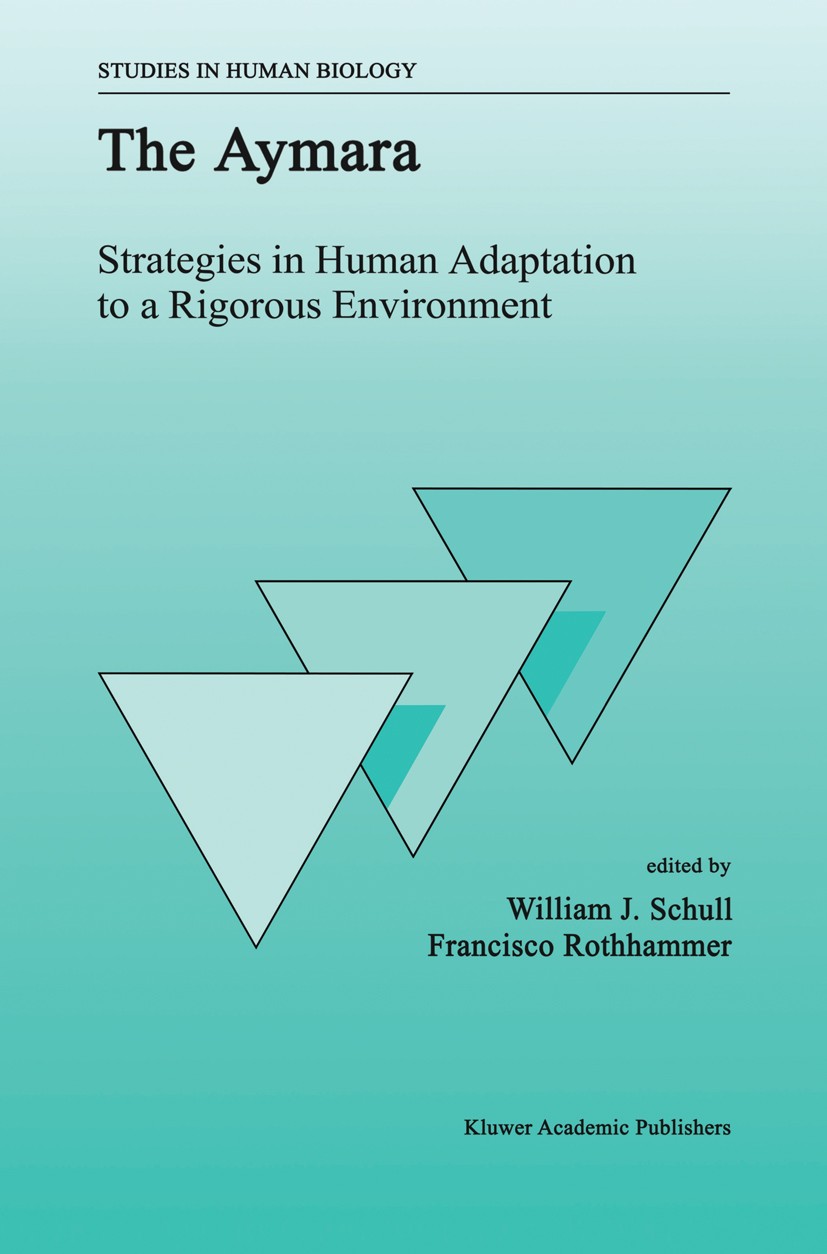| 书目名称 | The Aymara | | 副标题 | Strategies in Human | | 编辑 | William J. Schull,Francisco Rothhammer | | 视频video | http://file.papertrans.cn/905/904847/904847.mp4 | | 丛书名称 | Studies in Human Biology | | 图书封面 |  | | 描述 | South America‘s Andean highlands have seen the rise and decline of several impressive, indigenous civilizations. Separated somewhat in time and place, each developed its distinctive socio-cultural accouterments but all shared a need to adjust to the individual, societal and environmental limitations imposed by life at high altitude. Partial oxygen pressure, temperature and humidity fall systematically as altitude rises, but there are other changes as well. Darwin, Forbes, von Humboldt, von Tschudi and other naturalists of the eighteenth and nineteenth centuries who weaved their way through South America commented repeatedly on the tolerance or apparent indifference of the indigenes to the rigors of life at altitudes above 3000 meters but its impact upon lowlanders. Von Tschudi (1847), for example, observed ‘in the cordillera the effect of the diminished atmospheric pressure on the human frame shows itself in intolerable symptoms of weariness and an extreme difficulty of breathing . . . . The first symptoms are usually felt at the elevation of 12,600 feet (3800 m) above the sea. These symptoms are vertigo, dimness of sight and hearing, pains in the head and nausea . . . . Inhabitant | | 出版日期 | Book 1990 | | 关键词 | Charles Darwin; adaptation; electrophoresis; environment; fauna; flora; growth; iron; metals; nutrition; oxyge | | 版次 | 1 | | doi | https://doi.org/10.1007/978-94-009-2141-2 | | isbn_softcover | 978-94-010-7463-6 | | isbn_ebook | 978-94-009-2141-2Series ISSN 0926-9738 | | issn_series | 0926-9738 | | copyright | Kluwer Academic Publishers 1990 |
The information of publication is updating

|
|
 |Archiver|手机版|小黑屋|
派博传思国际
( 京公网安备110108008328)
GMT+8, 2026-2-10 00:12
|Archiver|手机版|小黑屋|
派博传思国际
( 京公网安备110108008328)
GMT+8, 2026-2-10 00:12


